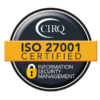At Rare Patient Voice, we connect patients and caregivers with opportunities to take part in several types of research. We always get their consent before sharing any data and we will never sell personal contact information.
RPV recruits patients and caregivers to take part in research including the following types:
Qualitative research is the process of gathering and analyzing personal experiences and opinions. Qualitative research studies may include:
- Telephone Interview/Tele-depth Interview (TDI) - participants are asked to share their reactions, opinions, and attitudes over the telephone
- Web-assisted Telephone Interview (WATI) - participants are asked to share their reactions, opinions, and attitudes using a platform such as Zoom, Skype, or Teams
- In-person Interview (IDI) - participants are asked to share their reactions, opinions, and attitudes in-person
- Ethnography (ETHNO) - a way of studying and learning about a person or group of people in their own environment
- Focus groups - involve a small group of people with things in common (ages, attitudes, etc.) that takes part in a discussion of topics led by a moderator; focus groups can be done in-person or remotely
- Journaling/homework - on paper or online, participants spend time each day describing their activities and how their medical condition impacts them
- Online bulletin boards/online communities - participants log onto on online platform over the course of a few days or weeks to provide their input on specific topics
- Usability/UX research - the interactions of participants (or “users”) are studied to help with the design of new products, medical devices, and experiences
- In-home Use Test (IHUT) - participants test products at home and report back
- Voice response - patients interact with a computer-operated phone system
Quantitative research is research based on statistics which is used to gather feedback on facts, opinions, and attitudes. Surveys and questionnaires are used most often to collect participant responses.
Advisory boards (ad boards) - patient advisory boards incorporate the patient perspective into various aspects of drug development and commercialization. They are made up of patients, family caregivers, and patient advocates who provide valuable insights based on their personal experiences with specific conditions. Advisory boards are used to help understand patient needs, provide input on clinical trial design, enhance patient-centric approaches, and provide feedback on communication and educational materials.
Clinical trials test medical, surgical, or behavioral approaches to disease. They are the main way that researchers find out if a new treatment, like a new drug or medical device, is safe and effective in people. A clinical trial can be used to learn if a new treatment is more effective or has less harmful side effects than the standard treatment. Other clinical trials test ways to find a disease early, while some test ways to prevent a health problem. A clinical trial may also look at how to make life better for people living with a life-threatening disease or a chronic health problem.
Real-World Data (RWD) and Health Economic Outcomes Research (HEOR) are related but different research approaches.
RWD focuses on patient health status and/or the delivery of health care collected from sources which can include:
- Electronic health records (EHRs)
- Claims and billing activities
- Product and disease registries
- Patient-generated data including in home-use settings
- Data gathered from other sources that can provide information on health status, such as mobile devices
HEOR measures the link between treatment and actual outcomes and provides guidance on how to improve care. HEOR is used by pharmaceutical companies to understand how healthcare providers prescribe drugs and how these drugs are performing in the real world.







